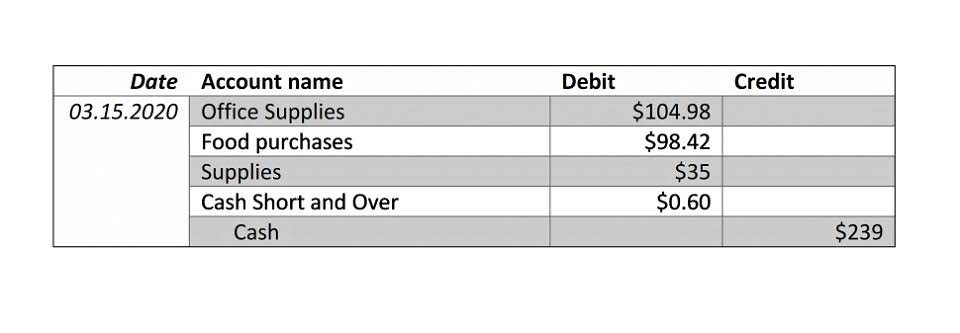

In later-stage funding events, investor terms may state that a CFO must be hired upon completion of the round. Restructuring a company requires in-depth knowledge of processes (see above), an ability to assess how to optimize capital structure, and an understanding of cost optimization and cash flows. During a restructuring, CFOs must detach from the established norms of the business and help reorganize activities and finances toward the new vision. High-growth companies often find themselves in the position of having to decide where cash is best spent. Fractional CFOs most commonly partner with companies to help overcome financial challenges, achieve growth, optimize strategy, implement systems, raise capital, or navigate an audit or transaction. Newer (and even more experienced) business owners often struggle with the depths of budgeting required to run a business, and doing so generally detracts from an owner or founder’s central mission – making money.
- Beyond just crunching numbers, a fractional CFO can also see the bigger picture to quickly identify areas of the business that need immediate attention, enabling you to remedy the situation quickly.
- Look for CFOs with extensive experience with companies in various development stages within your industry.
- There’s less fear “you’re going to lose your job and be unemployed after it’s over because you’ve got multiple clients,” he says.
- CFO responsibilities include evaluating all processes and clearly understanding their financial contribution to profitability and cash flow.
- They analyze current and historical data to provide transparency and definitive information.
Generally, fractional CFO services can range from a few thousand dollars per month to over $10,000 per month. With their vast experience, fractional CFOs can provide strategic financial advice and guidance. They can assist in navigating through financial challenges, planning mergers and acquisitions, or preparing for an IPO. A fractional CFO is an experienced CFO consultant who provides services for organizations in a part-time, retainer, or contract arrangement. There are multiple benefits of a fractional CFO, and these offer a company the experience and expertise of a high-end CFO without the in-house cost—salary, health benefits, and bonuses—of a full-time CFO.
Table of Contents
Sustainable Success: A Framework for Optimizing Profit
Ask about their previous engagements, their approach to financial challenges, and their understanding of the startup ecosystem. Make sure they have enough time to support your startup needs especially in tight schedules like due diligence and annual audit. As startups scale, they require sound financial strategies and plans to guide their growth. A fractional CFO can assist the finance leader in developing financial models, forecasting revenue and expenses, setting budgets, and creating financial roadmaps aligned with the company’s goals. Fractional CFOs generally possess vast networks of finance professionals and industry connections, offering benefits in fundraising, partnership opportunities, and accessing specialized resources. Their broad industry knowledge allows them to bring best practices and insights from various sectors, enriching the financial strategies of the company.
- A fractional CFO is also often brought into an organization to help achieve a particular goal, such as raising capital or preparing for a sale, merger, or acquisition.
- A fractional CFO offers a spectrum of services, spanning from developing financial strategies and optimizing costs to navigating audits.
- When revenue is scaling up at this fast-moving stage, there is likely a need to establish long-term stability on the finance team.
- A seasoned expert will guide you through the growth stage and ensure you have the capital to support the business through that stage.
- A fractional CFO (aka outsourced CFO), much like the name implies, is a part-time CFO that works with organizations to solve financial problems.
They can help you develop strategies to ensure your business is on track for success and pursuing its ultimate ambitions. Fractional CFOs are the next step in this evolution of the scrappy, bare-knuckle startup. Your startup benefits from all the expertise of an experienced CFO when it is needed the most, without the additional cost of having an extra C-suite colleague on your payroll. Including an experienced finance pro in the room with investors makes them feel more comfortable funding your start-up. Then, down the road, those businesses often have the opportunity to bring on a full-time CFO.
C Corp, S Corp, LLC? Finding the Best Fit for Your New Business
Clarifying your needs will help you identify the right qualities and expertise in a fractional CFO. Inflationary times pose challenges, but with strategic expense management, businesses can navigate these periods successfully. At Acuity, we understand the financial challenges startups face as they grow.


“If you can get a highly experienced CFO on your team for just a day or two a week, they can really move the needle,” he says. Fractional CFOs—highly-experienced finance chiefs who work contractually—are increasingly in demand. But what would make a finance leader who has worked on a full-time permanent basis at multiple companies pivot to becoming a fractional CFO? It may be an opportunity to become more strategic instead of just crunching numbers.
Stage 3: Fractional CFO
In other words, a CFO helps the CEO plan for the future – whether it’s three months, six months, or one year – while keeping track of the firm’s progress over time. A fractional CFO (aka outsourced CFO), much like the name implies, is a part-time CFO that works with organizations to solve financial problems. Overall, a Fractional CFO significantly contributes to financial savings by offering expert guidance, optimizing operations, minimizing risks, and ensuring efficient resource allocation. Their strategic input and financial modeling lead to significant cost savings and improved financial health for companies. An interim CFO is different than a fractional CFO (part-time CFO) because the interim CFO role is temporary.


It provides access to higher-level strategic planning, cash flow, advisory, negotiation, and financial analysis skills beyond preparing financial statements. They provide strategic financial planning useful in identifying opportunities and managing risks as the business expands. Startups can get overwhelmed with managing their finances on top of other responsibilities. Accurate, what does fractional cfo mean real-time financial data and strategic financial insights can mean the difference between make-or-break decisions. But, an in-house finance team with a CFO comes with a price tag of hundreds of thousands of dollars in salaries and benefits. A fractional CFO can provide the financial knowledge and expertise you need to scale your finances to fit the growth of your business.
Fractional CFO vs. Full-Time CFO vs. Interim CFO
From strategic planning and financial modeling, to improving investor relations and tax services, fractional CFOs offer invaluable expertise in finance that goes beyond the books. Fractional CFOs typically get paid hourly since they are part-time or work per project. If a CFO hasn’t worked with that specific business model they won’t provide in-depth expertise. Fractional CFOs with startup experience typically work with a variety of startups. They can handle financial tasks such as budgeting and cash flow management to keep things running smoothly. With company internal controls in place, you can focus on other aspects of the business.
A fractional CFO should be able to communicate complex financial concepts in a clear and concise manner. Blueprint CFO will work with executive leadership to determine shareholder value, and run various models to determine estimated company valuation. Together, we will determine milestone objectives to increase shareholder value and track company performance in relation to these targets. We will review your company’s organic and acquisition growth options to create shareholder value, and emphasize tax planning to optimize shareholder value upon a sale or purchase.
